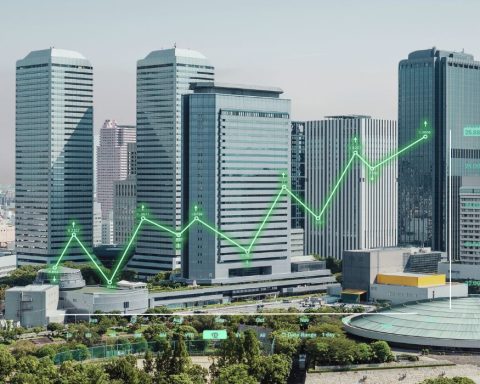Raj Lala, president of Evolve Funds Group Inc., is zero for three when it comes to launching responsible-investment-themed funds.
The first was a gender-diversity exchange-traded fund (ETF) that closed after three years when it failed to attract enough investors. The second and third were a pair of carbon-neutral ETFs that lasted less than a year because, according to Lala, investors didn’t want to pay higher fees to offset the carbon-credit trades.
“It was a painful decision,” Lala says of closing the Evolve North American Gender Diversity Index ETF in 2020. He thought the carbon-neutral ETFs tracking the S&P 500 and S&P/TSX 60 launched in 2021 might have a better chance, “but the market also told us that they weren’t interested in that either.”
Toronto-based Evolve is far from alone in its struggle to launch responsible investment (RI) funds that stick – and for different reasons. Hundreds of RI funds have been winding down in the United States and Europe in 2024 alone, and product development slowed significantly in the first nine months of the year when, according to Morningstar data, 246 new funds came to market globally, compared with 444 over the same period in 2023. Just 12 funds came to market in Canada in 2024 (as of mid-November), according to Morningstar, citing data from the Canadian Investment Fund Standards Committee. That’s down from 31 in 2023.
Some advisers say, ‘My clients don’t want this.’ But have you ever asked them?
– Tim Nash, founder, Good Investing
Morningstar says that after three years of high growth, managers are being more “selective and tactical” in their approach ahead of anti-greenwashing regulations in the United Kingdom and Europe. The European Union, which dominates the global RI fund market with an 84% share, followed by the United States at 11%, is also rolling out fund-naming rules to combat greenwashing, which could further shake up the RI fund industry.
While there are still a lot of RI funds on the market, many investors – and the advisers who manage their money – remain skeptical of them. Some advisers claim there’s not enough demand from investors, while some investors say not enough advisers are raising the topic. Often-cited deterrents include higher fees for RI funds, performance and greenwashing concerns, and a lack of standardization that gives investors a benchmark for what’s truly sustainable.
Of roughly 3,000 funds reviewed by the Corporate Knights research team, only 290 were identified as having a responsible/sustainability-oriented investment approach.
The 2024 Canadian RI Trends Report, released by the Responsible Investment Association (RIA) in November, says that performance concerns were a huge deterrent for institutional asset managers and asset owners surveyed, up significantly to 33% from 14% in 2023. The two concerns that came in higher – greenwashing and lack of standardization, at 44% each – were down from 64% and 57%, respectively, a year earlier.
Retail investors push for green funds
It’s not all doom and gloom. The survey also showed that 70% of respondents believe retail investors are likely to drive RI growth over the next two to five years, fuelled by increased concerns about climate change and social justice. Regulators and institutional investors (which includes banks, labour unions and pension funds) followed closely behind. RIA says investors are demanding “quality responsible investments” that are “transparent, credible and financially savvy.”
Tellingly, just 29% of respondents believed financial advisers would drive RI growth.
What RIA describes as a “service gap” between advisers and investors is more like a gaping chasm: two-thirds of investors surveyed by RIA in 2023 want their advisers to tell them about RI, yet less than a third of advisers do. Anecdotally, some retail-level advisers say they’re not getting enough educational support from their financial institutions on how best to sell existing sustainable fund products.
RIA is calling on advisers to better understand RI funds and strategies to help guide investor decisions. Two-thirds of the asset owners and managers surveyed in 2024 thought there should be an RI standard for advisers, and 13% said RI knowledge should be required in existing adviser designations.
As it stands, without those requirements in place, financial advisers have little incentive to offer sustainable investment options and strategies to their clients.
Financial advisers let perfect be the enemy of good
Tim Nash, a Toronto-based financial planner who founded Good Investing a decade ago to help investors align their values with their investment portfolios, says that some of his adviser peers underestimate demand for RI. “Some advisers say, ‘My clients don’t want this.’ But have you ever asked them?” Nash says. “There’s a tricky power dynamic between a client and an investment adviser. It does feel like investors have to step out on a limb a little bit to even broach the subject with their adviser.”
Advisers that lean into this generally offer more holistic financial planning with their clients. As this becomes more mainstream, understanding and discussing these approaches with your clients is a great way to differentiate your practice.
– Fate Saghir, head of sustainability, Mackenzie Investments
Nash believes many advisers are avoiding RI because of inherent flaws in some companies and funds. For instance, some banks might have ties to oil companies, or some consumer brands might make and sell plastics made from oil products.
“They let perfect be the enemy of good and use that as an excuse to do nothing,” says Nash, who also gets feedback from some investors that the available investment options don’t go far enough. “There’s no way to completely eliminate fossil fuels or plastics from your portfolio because supply chains are so entrenched. I try to do a lot of education around doing less evil versus doing more good.”
There’s also the concern that sustainable funds underperform the benchmarks, which Nash describes as “an ongoing frustration.” While many RI funds underperformed in 2022, amid rising oil prices and a backlash against ESG investing in places like the United States, Nash says performance was on par with benchmarks in 2023 and 2024. “The goal with responsible investing is to earn about the same returns [as the benchmarks], and they’re nailing that,” he says.
Nash notes that RI isn’t just about returns but is also a way to protect portfolios. Companies that set targets and take action on environmental, social and governance issues are considered less risky because they pay closer attention to environmental management and are less likely to make a governance or social misstep.
“Investors should be focused on risk-adjusted rates of return, and, in my mind, responsible investments are a great way of earning very similar returns in a way that lowers our exposure to sustainability risks like climate change,” Nash says.
Sustainability isn’t just financial
Fate Saghir, senior vice president and head of sustainability at Mackenzie Investments in Toronto, says some advisers are hesitant to bring up RI in conversations with clients. “Sustainability isn’t just financial. It’s also asking about personal topics and issues like diversity and climate change. For many advisers, having that conversation could be uncomfortable,” she says.
And while ESG is part of the know-your-client guidance set out by the Canadian Investment Regulatory Organization (CIRO) – the self-regulatory organization that oversees investment and mutual fund dealers in Canada – Saghir says the guidance uses language like “may” and “or,” which makes it sound optional. A CIRO spokesman said that advisers are encouraged to ask ESG questions as part of the know-your-client process, but it’s not a requirement.

Greenwashing concerns and a lack of standardization of what constitutes an RI fund are also a disincentive for some advisers, Saghir says. “There are different rating agencies with different methodologies that asset managers might use to incorporate ESG in their investment process, so there’s still a lot of uncertainty, even for the industry,” she says. “Advisers may be unclear on how to prove to a client that a fund is going to deliver on what it says it will from an ESG perspective. That’s why we’re advocating for standardization of disclosures that will create consistency and clarity and increase investor and adviser confidence.”
For advisers who want to broach sustainable investing with clients, Saghir suggests starting by asking about philanthropy and the charities they support. “It’s a great way to discover what their values are,” she says.
From there, she says that advisers can ask questions about whether clients want their investments to align with their social and environmental values, covering topics such as gender equality and climate change, and whether there are certain companies or sectors they want to avoid in their investment portfolios.
“Advisers that lean into this generally offer more holistic financial planning with their clients,” she says, citing RIA’s trends report, which shows that 71% of investment assets in Canada employ at least one RI strategy. “As this becomes more mainstream, understanding and discussing these approaches with your clients is a great way to differentiate your practice.”
Belief versus business
Lala notes that Evolve Funds has other products that fall into the RI category, including the Evolve Automobile Innovation Index Fund, which invests in companies involved in developing electric and autonomous vehicles, and the Evolve Cyber Security Index Fund, which invests in global companies involved in the cybersecurity industry, an increasingly important part of corporate governance mandates. Both are still trading and have performed well in recent years.
Still, he’ll likely hold off on launching another RI-specific fund until he’s convinced that investors and advisers have a stronger appetite for them. “It’s something that we believe in, but we also run a business. It costs a lot to launch and operate a fund, and it costs a lot to shut down a fund, so you really have to have pretty good conviction that it’s going to work.”
Brenda Bouw is a freelance writer and editor based in Vancouver.
Illustrations by C.J. Burton.
2025 Responsible Funds
Of roughly 3,000 funds reviewed by the Corporate Knights research team, only 290were identified as having a responsible/sustainability-oriented investment approach.
Here are the top 40 across four categories.
| Fund name | % market weight covered by Corporate Knights ratings* | Weighted rating** | Final score*** | Holdings date | Number of eligible funds |
|---|---|---|---|---|---|
| CANADIAN EQUITY | |||||
| RBC Vision QUBE FFF LV Canadian Equity Fund | 93.6% | 19.3% | 100% | 2024-06-30 | 115 |
| iShares Jantzi Social Index ETF (XEN) | 97.2% | 19.3% | 99% | 2024-07-31 | 115 |
| Desjardins Sustainable Canadian Equity Fund | 91.9% | 18.9% | 98% | 2024-07-31 | 115 |
| CIBC Sustainable Canadian Equity Fund | 98.6% | 17.8% | 94% | 2023-12-31 | 115 |
| Invesco S&P/TSX Composite ESG Index ETF (ESGC) | 95.9% | 17.4% | 92% | 2024-07-31 | 115 |
| Invesco S&P/TSX Composite ESG Tilt Index ETF (ICTE) | 96.5% | 17.4% | 91% | 2024-07-31 | 115 |
| Mackenzie Betterworld Canadian Equity Fund | 91% | 17.4% | 90% | 2024-02-29 | 115 |
| Invesco S&P/TSX 60 ESG Tilt Index ETF (IXTE) | 97.9% | 16.6% | 84% | 2024-07-31 | 115 |
| RBC Vision Canadian Equity Fund | 97.4% | 15.6% | 75% | 2024-06-30 | 115 |
| BMO Sustainable Opportunities Canadian Equity | 90.3% | 15.4% | 73% | 2024-03-31 | 115 |
| GLOBAL EQUITY | |||||
| CI MSCI World ESG Impact Index ETF (CESG) | 95% | 27% | 100% | 2024-07-31 | 179 |
| AGF Global Sustainable Growth Equity Fund /ETF (AGSG) | 95.4% | 25.7% | 99% | 2024-03-31 | 179 |
| Black Diamond Impact Core Equity Fund | 78.3% | 25.2% | 99% | 2023-12-31 | 179 |
| NEI Environmental Leaders Fund | 94.8% | 20.6% | 98% | 2024-06-30 | 179 |
| BMO Sustainable Opport Global Equity Fund | 96% | 20.4% | 97% | 2024-03-31 | 179 |
| Desjardins Sustainable Positive Change | 88.8% | 19.9% | 97% | 2024-07-31 | 179 |
| Brompton Sustainable Real Assets Dividend ETF (BREA) | 98.4% | 19.5% | 96% | 2023-12-31 | 179 |
| Mackenzie Betterworld Global Equity Fund | 95.4% | 18.7% | 96% | 2024-02-29 | 179 |
| BMO MSCI ACWI Paris Aligned Climate Equity Index ETF (ZGRN) | 97.2% | 17.1% | 94% | 2024-07-31 | 179 |
| Manulife Climate Action Fund | 97.3% | 17% | 93% | 2024-06-30 | 179 |
| INTERNATIONAL EQUITY | |||||
| Franklin ClearBridge Sustainable International Growth Fund | 89.3% | 17.6% | 98% | 2024-06-30 | 100 |
| Invesco S&P International Developed ESG Tilt Index ETF (IITE) | 97.7% | 17.5% | 97% | 2024-07-31 | 100 |
| Desjardins Sustainable International Equity | 91.4% | 16.7% | 94% | 2024-07-31 | 100 |
| Wealthsimple Developed Markets ex North America Socially Responsible Index ETF (WSRD) | 97.2% | 16% | 87% | 2024-07-31 | 100 |
| NEI International Equity RS Fund | 90.5% | 16% | 86% | 2024-06-30 | 100 |
| iShares ESG Aware MSCI EAFE Index ETF (XSEA) | 95.7% | 15.9% | 85% | 2024-07-31 | 100 |
| Invesco S&P International Developed ESG Index ETF (IICE) | 95.9% | 15.7% | 84% | 2024-07-31 | 100 |
| iShares ESG Advanced MSCI EAFE Index ETF (XDSR) | 92.6% | 15.6% | 83% | 2024-07-31 | 100 |
| Desjardins RI Developed ex-USA ex-Canada - Net-Zero Emissions Pathway ETF (DRMD) | 94.9% | 15.3% | 81% | 2024-07-31 | 100 |
| Lazard International Compounders Fund | 95.4% | 14.9% | 77% | 2024-07-31 | 100 |
| U.S. EQUITY | |||||
| Invesco ESG NASDAQ 100 Index ETF (QQCE) | 97.4% | 19.2% | 100% | 2024-07-31 | 166 |
| Desjardins Sustainable American Equity Fund/ETF (DSAE) | 95.8% | 18.4% | 99% | 2024-07-31 | 166 |
| Invesco S&P 500 ESG Index ETF (ESG) | 98.1% | 16.7% | 98% | 2024-07-31 | 166 |
| Invesco S&P US Total Market ESG Index ETF (IUCE) | 98.1% | 15.8% | 94% | 2024-07-31 | 166 |
| Invesco S&P 500 ESG Tilt Index ETF (ISTE) | 98.4% | 15.6% | 93% | 2024-07-31 | 166 |
| Mackenzie Bluewater US Growth Fd A | 95% | 15.3% | 90% | 2024-02-29 | 166 |
| Invesco S&P US Total Market ESG Tilt Index ETF (IUTE) | 97.5% | 14.9% | 87% | 2024-07-31 | 166 |
| iShares ESG Aware MSCI USA Index ETF (XSUS) | 97.3% | 14.9% | 87% | 2024-07-31 | 166 |
| BMO MSCI USA ESG Leaders Index ETF (ESGY) | 96.7% | 14.2% | 81% | 2024-07-31 | 166 |
| Desjardins RI USA - Net-Zero Emissions Pathway ETF (DRMU) | 97.8% | 14% | 81% | 2024-07-31 | 166 |
*Sum of a given fund’s underlying constituents’ weights that are rated by Corporate Knights.
**The weight of a constituent of a given fund multiplied by its rating by Corporate Knights, summed up for all of that fund’s underlying constituents.
***The score of a given fund (based on the percent-ranking calculation approach) derived by comparing its weighted rating against that of other funds in the same category.


